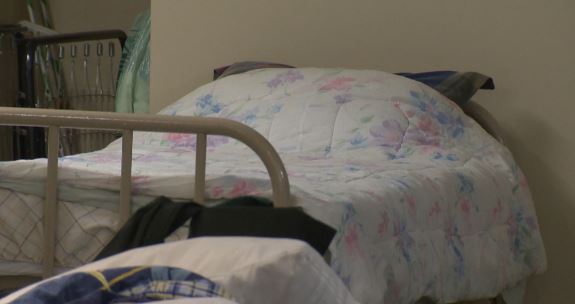When COVID-19 first came onto the radar of public health officials in Nova Scotia, workers and volunteers on the front-lines of homelessness support immediately identified the need to swiftly develop a strategy for people without access to safe and affordable housing.

“We realized, very quickly, that a segment of the population just couldn’t follow these particular public ordinances. Like, stay home, wash your hands, create social, physical distancing,” Jeff Karabanow said, a professor of social work at Dalhousie University and co-founder of the Out of the Cold emergency shelter in Halifax.
READ MORE: Mobile coronavirus health team testing every homeless shelter in Halifax after case identified
Karabanow says those public ordinances weren’t possible to follow for people living on the streets, in shelters, or precarious housing.
Thankfully, he says the provincial government was swift to respond to the call for help in developing a strategy that included pop-up shelters in empty spaces like Citadel High School in Halifax.
29-year-old Gregory Caines was one of the people who ended up staying at that pop-up shelter. He says he was awestruck over the intense desire volunteers had to help people in very vulnerable situations.
In April, a confirmed case of COVID-19 was linked to one of the pop-up shelters in Halifax and all residents and staff were forced to self-isolate.

Get weekly health news
No further cases were confirmed.
Following the positive test, dozens of people experiencing homelessness were moved to hotels throughout the downtown core of Halifax.
Caines was one of them.
READ MORE: Halifax’s Out of the Cold shelter changes model amid COVID-19 pandemic
He says having a secure and safe space to sleep every night worked wonders for his mental and physical health.
He also credited the staff at the Lord Nelson for being willing and eager to support people like him during a time of so much uncertainty due to the pandemic.
“I have that structure right now. I’ve got a roof over my head, I have food in the morning, at lunch, at supper. I think emotionally it showed that people care and people want to help others,” Caines said.
Karabanow says both the provincial and federal government worked to support homeless initiatives during the pandemic, including funding for hotels.
READ MORE: N.S. government working to address COVID-19 homelessness concerns
Now, that hotel funding is drawing to a close and Karabanow says there is a renewed effort from the province to help move homeless clients into more permanent housing.
He credits housing support workers as leading the charge in connecting clients to potential rental units.
“The last thing we ever wanted was to provide hotel rooms for three, or four months and then have people back on the streets. So, we credit all the housing support workers that are working together to really mobilize, in way that we’ve never seen before, to get people into more permanent housing,” Karabanow said.

23 housing support workers have been funded through the Municipal Affairs and Housing department to help transition homeless clients from the shelter system, including hotels, into more permanent homes.
Rent supplements are also being provided to help find and secure housing.
The rent supplements are being allocated through the Coordinated Access Table, a process that is managed through the Affordable Housing Association of Nova Scotia.









Comments